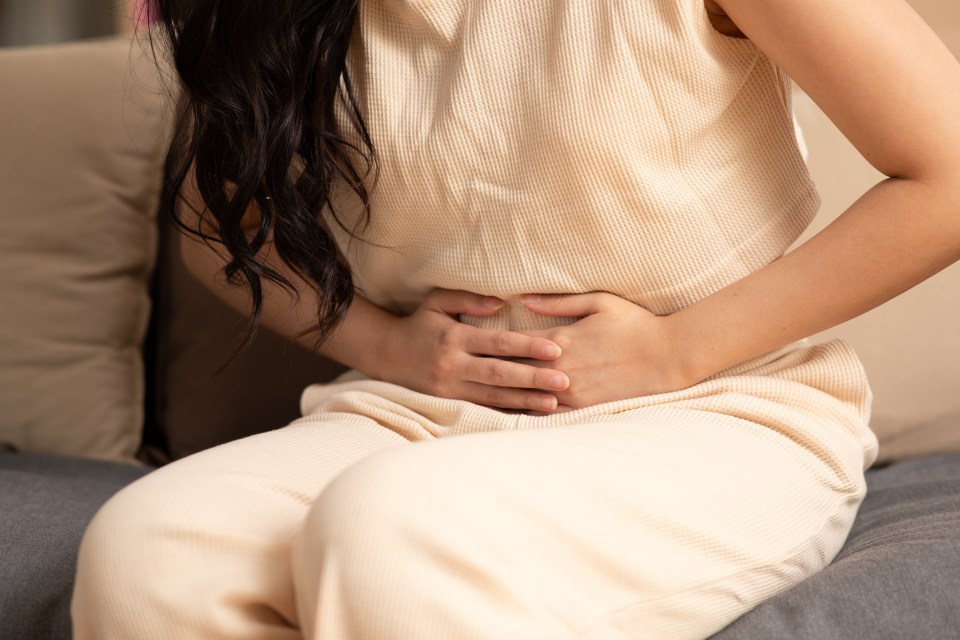CASES of an agonising infection surge over the summer months, a GP has warned.
Swimming can be a key trigger of the illness, as can forgetting to drink water or getting too caught up to go to the loo.
As temperatures rise and summer activities ramp up, so does the risk of urinary tract infections (UTIs) in women, according to Dr Hina Gauher, GP and cystitis lead at Boots Online Doctor.
In fact, the number of people visiting the pharmacy chain about UTIs has risen over the summer months.
UTI consultations through the NHS Pharmacy First scheme – which allows patients to seek help over seven common conditions – saw a 10 per cent increase between May and June this year, Boots told Sun Health.
Data from the UK Health Security Agency (UKHSA) also showed a 9 per cent increase in UTI related hospital admissions compared to the previous 12 months.
Read more on summer health
Many of these patients were in hospital for less than a day – with Boots suggesting hospital trips could be avoided by accessing early advice and appropriate treatment.
Dr Gauher said: “UTIs are common bacterial infections affecting the urinary tract that can cause painful symptoms, interrupt travel plans, and sometimes lead to more serious health complications if left untreated.”
These can include a high temperature, pains in the lower tummy or back, as well as needing to pee urgently and a burning sensation when you do so.
“Dehydration, frequent swimming, and changes in hygiene routines during the holidays can increase the risk of UTIs,” the GP went on.
“It’s important to stay aware and take preventive measures, especially during these warmer months.”
The GP shared her seven top tips for preventing UTIs or stopping them in their tracks.
1. Stay hydrated
Are you forgetting to drink water while getting caught up in your summer plans?
This can make UTIs more likely, Dr Gauher warned.
“Drinking plenty of water throughout the day is one of the best ways to help flush out bacteria from your urinary tract and relieve UTI symptoms,” she said.
“Try and aim for at least six to eight glasses of water a day.”
2. Pee regularly
The same applies for going to the loo.
“Urinating regularly is key too,” the GP went on.
“Don’t hold in urine and try to go to the toilet as soon as you feel the need to.
“This helps clear bacteria from the urinary tract before it has the chance to multiply.”
What is a UTI?
Urinary tract infections (UTIs) are usually caused by E.coli bacteria – found in poo – entering the urinary tract.
The bacteria enter through the tube that carries pee out of the body (urethra).
Women are more likely than men to pick up UTIs as they have a shorter urethra than men.
This means bacteria are more likely to reach the bladder or kidneys and cause an infection.
According to the NHS, things that increase the risk of bacteria getting into the bladder include:
- Having sex
- Pregnancy
- Conditions that block the urinary tract – such as kidney stones
- conditions that make it difficult to fully empty the bladder – such as an enlarged prostate in men and constipation in children
- Urinary catheters (a tube in your bladder used to drain urine)
- Having a weakened immune system – for example, people with diabetes or people having chemotherapy
- Not drinking enough fluids
- Not keeping the genital area clean and dry
Check if it’s a UTI
Symptoms of a urinary tract infection (UTI) may include:
- Pain or a burning sensation when peeing (dysuria)
- Needing to pee more often than usual
- Needing to pee more often than usual during the night (nocturia)
- Needing to pee suddenly or more urgently than usual
- Pee that looks cloudy
- Blood in your pee
- Lower tummy pain or pain in your back, just under the ribs
- A high temperature, or feeling hot and shivery
- A very low temperature below 36C
Your pee may also be dark or smell. If this is your only symptom, it might be because you’ve not been drinking enough water.
What to do if you think you have a UTI
If you think you have UTI symptoms, you should speak to your GP to discuss treatment options.
Most people will need antibiotics.
Some people may be prescribed a ‘delayed antibiotic’, meaning they’ll be asked only to use it if their symptoms don’t go away after a certain amount of time.
If you keep getting UTIs, your GP might recommend you have a low dose of antibiotics over a long period of time or refer you to a specialist for more tests and treatments.
For women who have gone through menopause, there is evidence that vaginal oestrogen creams can reduce UTI symptoms.
Source: NHS
3. Wipe well
Sometimes your wiping habits could put you in the danger zone of a UTI, according to Dr Gauher.
“Practising good hygiene is another important step,” she stressed.
“Always wipe from front to back after using the toilet to prevent bacteria from spreading to the urethra, reducing the risk of infection.”
4. Change out of wet swimmies
After you’ve had a dip in the sea or the pool, do you find yourself hanging out in your wet bikini?
It’s best to change out of it soon, Dr Gauher advised.
The same goes for your damp workout clothes too.
“Prolonged moisture creates a breeding ground for bacteria,” she explained.
“After swimming or workouts, change into dry clothing promptly.”
5. Pee after sex
Though it’s blissful to cuddle after sex, it’s worth breaking the spell for a moment to nip to the loo.
“Sex habits also play a role in preventing infections,” the GP said.
“Urinating shortly afterward can help remove bacteria and lower the risk of developing a UTI.”
You might also want to consider “sashing the vaginal area before and after sexual activity” to make sure no germs get into your urinary tract.
6. Avoid scented soaps
There’s nothing nicer that coming out of the shower smelling delicious – but it’s a good idea to keep scented stuff away from your vagina.
“Skip douches, scented soaps, and harsh feminine sprays, which can upset the natural balance of healthy bacteria,” Dr Gauher advised.
7. Know red flag symptoms
Make sure you’re up to date with red flag UTI symptoms so you can seek help promptly.
“UTIs are infections that can affect the bladder, kidneys and the tubes connected to them,” Dr Gauher explained.
“They can cause symptoms like pain or a burning sensation when urinating, needing to urinate more often, and cloudy or strong-smelling urine.”
Women aged 16-64 can access advice and prescription treatment through the NHS Pharmacy First Service, which is available at Boots stores in England as well as other pharmacies.
But if you’re younger or older than this age range or keep getting UTIs, you should speak to your GP.
You can get further advice from the Boots Online Doctor Cystitis Treatment service.













